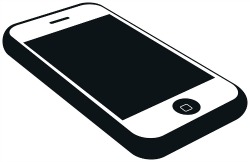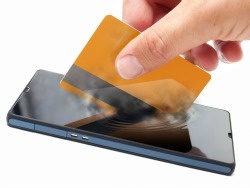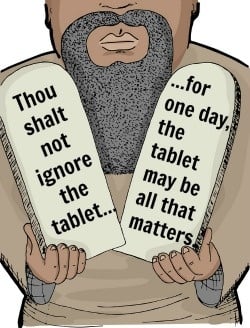What is a Phablet and Why Should Credit Unions Care?
 Today's blog post features a portion of the article posted on The Financial Brand: "Consumers Addicted to Mobile Banking". To better understand the buying and usage patterns of the modern mobile banking consumer, Carlisle & Gallagher Consulting Group (CG) conducted an online survey of 1,005 U.S. consumers as well as surveying financial services executives at the top 20 U.S. financial institutions. The research also sought to better understand how mobile devices, and the shift in mobile device size (tablets getting smaller, smart phones getting larger), will influence how consumers do their banking in the future. Here is just one part of this report: "Rise of the Phablet."
Today's blog post features a portion of the article posted on The Financial Brand: "Consumers Addicted to Mobile Banking". To better understand the buying and usage patterns of the modern mobile banking consumer, Carlisle & Gallagher Consulting Group (CG) conducted an online survey of 1,005 U.S. consumers as well as surveying financial services executives at the top 20 U.S. financial institutions. The research also sought to better understand how mobile devices, and the shift in mobile device size (tablets getting smaller, smart phones getting larger), will influence how consumers do their banking in the future. Here is just one part of this report: "Rise of the Phablet."
A phablet is a class of mobile device designed to combine or straddle the form of a smartphone and tablet. Thanks to the introduction of the iPhone 6 Plus and increased viewing of video content on mobile devices, there has been a recent upsurge of phablet purchases and usage among all demographic groups. The CG study illustrated the impact of this growth on banking, finding that 46% of U.S. consumers are more likely to conduct mobile banking due to larger devices, such as a phablet.
Other characteristics of a typical phablet owner were:
Other characteristics of a typical phablet owner were:
- Male (65%)
- Younger (more than a third are 25-34 years old)
- Habitual mobile banker (40% do mobile banking 4+ times/week)
- Multi-device owner (3 or more devices on average)
- More likely to buy a wearable (33%)
“While the use of a phablet for banking is still small compared to other digital devices, this growth is expected to continue to accelerate as more consumers opt for increased real estate as part of their mobile experience,” stated Cameron in an exclusive interview with The Financial Brand. In fact, one in six U.S. consumers believe mobile banking is an important reason to buy a large screen smartphone/phablet.
“CG believes that phablets will have approximately 30 percent of the mobile device market share by 2020 and become the dominant device for mobile banking,” said Cameron. “We also project that tablets will decline in popularity, especially as a device on which to do banking. Our study found 68 percent do not use tablets today for banking.”



